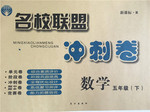题目内容
At one time, people used to travel to foreign countries because they thought they would be different from home—the building, the food, the national dress. Nowadays, however, one large city is very like another. They all have their Hilton or Sheraton Hotels which look Hilton or Sheraton Hotels everywhere. They all have their McDonald’s, their KFCs, their Pizza Huts. Office buildings look the same everywhere, and most city centers are full of office buildings. And, of course, people are driving the same brands of Japanese or European cars, usually wearing the same kinds of clothing and the world’s airlines are all flying the same aircraft, Boeings or Airbuses.
What, therefore, is the purpose of foreign travel for people who are not on business? What do tourists hope to experience in a foreign country that they cannot experience at home? Why travel to foreign countries at all? The answer could be that people are very interested in the past. It is a nation’s history that is its main attraction. Most of today’s tourists travel overseas to find out what foreign countries and cultures used to be like, not what they are like today. The words “cultural tourism” are now part of the language of tourism, and it is the museums and works of art in many countries that are their main attractions.
If they are lucky—and have had sensible, strong governments—many countries also usually have at least a few beautiful places for tourists to visit.
Finally there is perhaps a nation’s greatest attraction: its people. A nation is not just its historical buildings, its works of art or beautiful places, it is also the people who live in it. This is why a country such as Thailand attracts millions of people every year. They come mainly because of the friendliness of the Thai people. It is why the Pacific Islands are also so popular. There may not be much to see or do in Fiji, but there are lots of friendly, smiling people to make visitors feel welcome.
1.The passage is mainly about .
A.the importance of tourism B.different foreign cultures
C.how to plan an overseas trip D.why people travel to foreign countries
2.The writer thinks that large cities in foreign countries .
A.are similar to one another B.share the same aircraft
C.do not have good hotels D.do not offer a warm service to foreigners
3.The writer believes that many tourists are interested in foreign .
A.hotels B.history C.cars D.programs
4.The underlined phrase “cultural tourism” means .
A.visiting lots of museums B.traveling overseas
C.studying the history of a foreign country D.tourists being interested in a nation’s past and ideas
1.D
2.A
3.B
4.D
【解析】略

 阳光考场单元测试卷系列答案
阳光考场单元测试卷系列答案 名校联盟冲刺卷系列答案
名校联盟冲刺卷系列答案 名校提分一卷通系列答案
名校提分一卷通系列答案My six-year-old granddaughter, Caitlyn, and I stopped at a Tim Horton’s shop for a blueberry cake. As we were going out of the door, a young teenage boy was coming in.
This young man had no hair on sides of his head with a set of blue spiked(竖起的)hair on top of it. One of his nostrils(鼻孔) was pierced (扎、穿), and a ring ran through the hole and a chain went across his face and was attached to a ring he was wearing in his ear. He held a skateboard under one arm and a basketball under the other.
Caitlyn, who was walking ahead of me, stopped at once when she saw the teenager, I thought he’d scared her and she’d frozen on the spot.
I was wrong.
My granddaughter backed up against the door and opened it as wide as it would go. Now I was face to face with the young man. I stepped aside and let him pass. His response was a polite “Thank you very much”.
On our way to the car, I praised Caitlyn for her manners in holding open the door for the young man. She didn’t seem to be troubled by his appearance, but I wanted to make sure. If a grandmother’s talk about freedom of self-expression and allowing people their differences was in order, I wanted to be ready.
As it turned out, the person who needed the talk was me.
The only thing Caitlyn noticed about the teenager was the fact that his arms were full. “He would have a hard time to open the door. ”
I saw the partially shaved head, the set of spiked hair, the piercing and the chain. She saw a person carrying something under each arm and heading toward a closed door.
In the future, I hope to get down on her level and raise my sights.
【小题1】What did the author think of the young man?
| A.Polite. | B.Uncommon. | C.Frightening. | D.Funny. |
| A.she was scared | B.she didn’t notice his look |
| C.she wanted to avoid him | D.it would be difficult for him to open the door |
| A.the author was ashamed of herself |
| B.the author didn’t know how to give a talk on freedom |
| C.a talk on freedom was useless for the granddaughter |
| D.people should have more freedom to express themselves |
| A.we shouldn’t judge a person by his look |
| B.we should allow people more freedom to dress differently |
| C.we should be more helpful and tolerant(宽容的)to people |
| D.we shouldn’t be too particular about people in life |
On a sunny day last August, Tim heard some shouting. Looking out to the sea carefully, he saw a couple of kids in a rowboat were being pulled out to sea.
Two 12-year-old boys, Christian and Jack, rowed out a boat to search for a football. Once they'd rowed beyond the calm waters, a beach umbrella tied to the boat caught the wind and pulled the boat into open water. The pair panicked and tried to row back to shore. But they were no match for it and the boat was out of control.
Tim knew it would soon be swallowed by the waves. "Everything went quiet in my head," Tim recalls(回忆). "I was trying to figure out how to swim to the boys in a straight line."
Tim took off his clothes and jumped into the water. Every 500 yards or so, he raised his head to judge his progress. "At one point, I considered turning back," he says. "I wondered if I was putting my life at risk." After 30 minutes of struggling, he was close enough to yell to the boys, "Take down the umbrella!" Christian made much effort to take down the umbrella. Then Tim was able to catch up and climb aboard the boat. He took over rowing, but the waves were almost too strong for him.
"Let's aim for the pier(码头)," Jack said. Tim turned the boat toward it. Soon afterward, waves crashed over the boat, and it began to sink. "Can you guys swim?" he cried. "A little bit," the boys said. Once they were in the water, Tim decided it would be safer and faster for him to pull the boys toward the pier. Christian and Jack were wearing life jackets and floated on their backs. Tim swan toward land as water washed over the boys' faces.
“Are we almost there?” they asked again and again. "Yes," Tim told them each time. After 30minutes, they reached the pier.
【小题1】Why did the two boys go to the sea?
| A.To go boat rowing. |
| B.To get back their football. |
| C.To swim in the open water. |
| D.To test the umbrella as a sail. |
| A.The beach. | B.The water. |
| C.The boat. | D.The wind. |
| A.To take in enough fresh air. |
| B.To consider turning back or not. |
| C.To check his distance from the boys. |
| D.To ask the boys to take down the umbrella. |
| A.They were dragged to the pier by Tim. |
| B.They swam to the pier all by themselves. |
| C.They were washed to the pier by the waves. |
| D.They were carried to the pier by Tim on his back. |